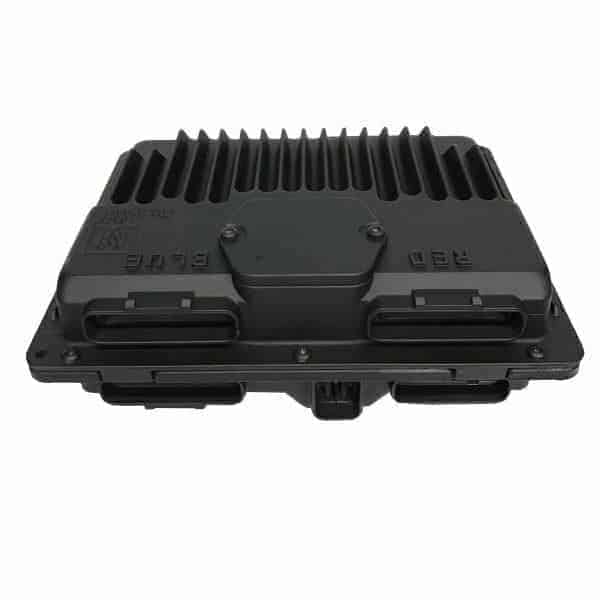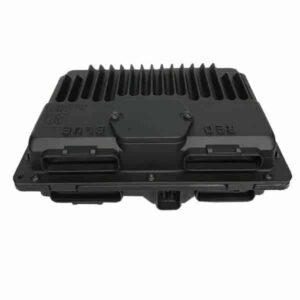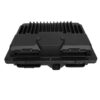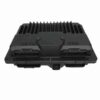Restore Peak Performance to Your GM Truck or Van
If you’re wrestling with a frustrating no-start condition, a persistent check engine light, or erratic engine behavior in your 1998 Isuzu Hombre, the problem often points directly to a failing Powertrain Control Module (PCM). As a technician with over two decades of experience under the hood, I’ve seen countless vehicles sidelined by faulty engine computers. This isn’t just a part; it’s the brain of your engine, and when it falters, everything from fuel economy to transmission shifting can suffer. This reliable, VIN-programmed PCM is the definitive solution to get your vehicle running smoothly again.
This is a genuine, road-tested OEM unit sourced from a salvaged vehicle, ensuring factory-level compatibility and durability that many aftermarket parts can’t match. We take the guesswork and hassle out of the replacement process. Before we ship, we flash this 1998 Isuzu Hombre PCM with the latest GM software updates and program it specifically to your vehicle’s VIN. This means it arrives ready for a straightforward installation, saving you a costly trip to the dealership for programming.
Case Study: A Tricky Diagnosis
A customer brought in a ’99 Chevy Suburban that had been to two other shops. It had a random stalling issue and a ghost-like misfire that never set a specific cylinder code. They had already replaced plugs, wires, and the coil. My scan tool showed intermittent communication loss with the PCM. Instead of just throwing parts at it, we checked the main power and ground circuits to the computer—they were solid. This confirmed our suspicion: the PCM’s internal processor was failing under load. We installed a VIN-programmed module just like this one, performed the security relearn, and the truck ran perfectly. It’s a classic example of why you must confirm the basics before condemning the computer, but also a reminder that a faulty PCM can cause some truly baffling symptoms.
Common Signs of a Failing PCM
A failing engine computer can manifest in various ways. If your vehicle is experiencing any of the following, a faulty PCM could be the culprit:
- ✔ Check Engine Light is on with communication error codes like P0601, P0605, or P0606.
- ✔ Vehicle will not start or is very difficult to start.
- ✔ Poor or erratic automatic transmission shifting.
- ✔ Noticeable drop in fuel efficiency for no apparent reason.
- ✔ Engine stalling, stumbling, or misfiring intermittently.
- ✔ Failure to pass an emissions inspection.
A Straightforward Guide to Your PCM Swap
Replacing the PCM in these GM trucks and vans is a job most DIY mechanics can handle. Follow these general steps for a successful installation.
- Safety First: Always disconnect the negative terminal from your vehicle’s battery before starting any electrical work.
- Locate the PCM: On most of these vehicles, the PCM is located in the engine compartment, typically on the driver’s side fender or near the battery.
- Disconnect the Connectors: Carefully unlatch and remove all wiring harness connectors from the old PCM. Inspect them for any corrosion or damage.
- Remove the Old Module: Unbolt the old PCM from its mounting bracket and remove it from the vehicle.
- Install the New Module: Mount your new, pre-programmed PCM into the bracket and securely reconnect all wiring harnesses. Ensure they click into place.
- Reconnect the Battery: Re-attach the negative battery terminal.
- Perform Security Relearn: You will likely need to perform a security relearn procedure (often called a CASE learn or Passlock relearn) to sync the new PCM with your vehicle’s anti-theft system. This procedure can typically be done without special tools.
Verified Vehicle Compatibility
This module is a direct replacement for part numbers 09355699, 16266645, 16250279, 16258815, 09366810 and fits a wide range of GM vehicles. Please match your part number or verify your vehicle is on the list below. This is a 1998 Isuzu Hombre PCM and also fits:
- 1998-1999 Chevrolet & GMC C/K 1500, 2500, 3500 Pickups (Gasoline)
- 1998-1999 Chevrolet Suburban & Tahoe (Gasoline)
- 1998-1999 GMC Yukon & Suburban (Gasoline)
- 1999 Cadillac Escalade
- 1998-1999 Chevrolet Express & GMC Savana 1500, 2500, 3500 Vans (Gasoline)
- 1998 Chevrolet Astro & GMC Safari
- 1998 Chevrolet S10, GMC Sonoma, Isuzu Hombre (4.3L V6)
- 1998 Chevrolet Blazer, GMC Jimmy, Oldsmobile Bravada (4.3L V6)
- 1998 Oldsmobile Envoy
Note: For 4.3L applications, this fits models without extended build date option ZN4. Please provide your VIN upon purchase to ensure perfect programming for your specific vehicle configuration. A properly programmed 1998 Isuzu Hombre PCM ensures all systems function as intended.
Frequently Asked Questions
Do I need to do anything after installing this PCM?
Yes. While we program the module to your VIN, you will need to perform a security relearn procedure so your vehicle recognizes the new computer. This allows the engine to start and run. This procedure varies by model but typically involves turning the key on and off in a specific sequence.
What information do you need from me?
After you complete your purchase, you must provide us with your vehicle’s 17-digit VIN (Vehicle Identification Number). This is essential for us to program the PCM correctly for your engine, transmission, and options.
Is this a new part?
No, this is a high-quality, tested used OEM part that has been sourced from a salvaged vehicle. We inspect and verify each unit to ensure it’s fully functional before programming and shipping.
Will this fix my check engine light?
If the check engine light is caused by an internal failure of your original PCM (e.g., DTC P0601), then this part will solve the problem. However, if the light is on due to a faulty sensor or other component, you will still need to address that separate issue.
What if my part number isn’t an exact match to 16250279?
This PCM is a direct replacement for several part numbers, including 09355699, 16266645, and others listed. As long as your vehicle and original part number are on our compatibility list, this module will work perfectly once programmed to your VIN.



